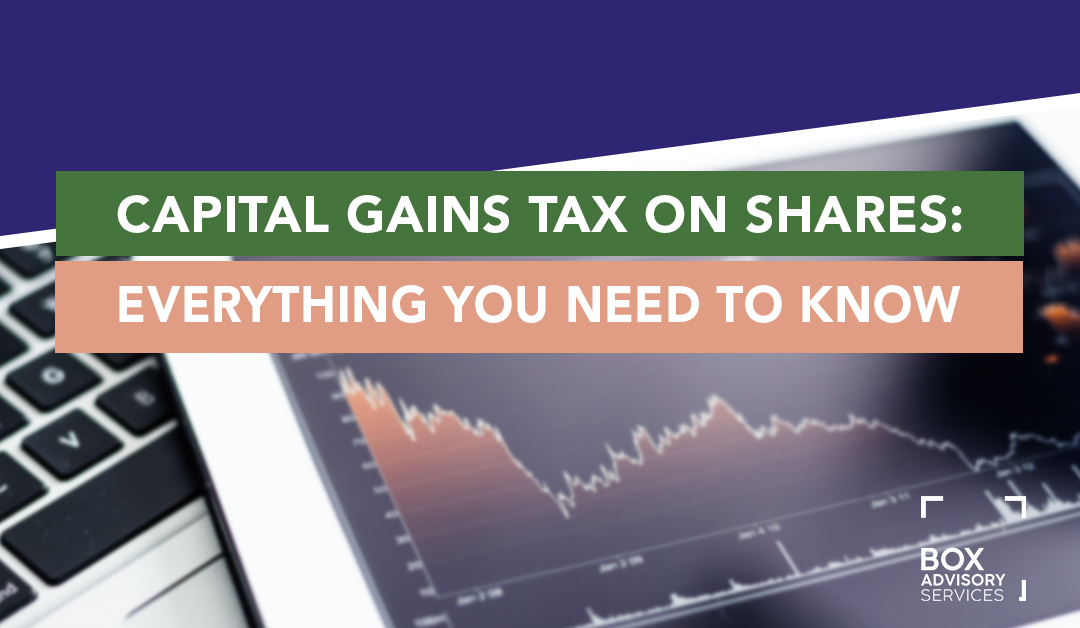Capital gains tax is an unavoidable expense that many investors have to face during their investment journey.
Whether you own shares or property, if you make a capital gain on the sale of those investments, you’ll have to pay capital gains tax (CGT) to the Australian Taxation Office (ATO).
Although capital gains tax is not a “separate tax” and is essentially added to your income tax return as taxable income, it can significantly impact how much tax you have to pay in a given year.
And while capital gains tax on shares is treated in the same way as any other capital assets, it can be complex because there are several moving parts when it comes to acquiring and disposing of shares.
So, to understand exactly when you have to pay capital gains taxes and how paying capital gains tax on shares is calculated – here’s everything you need to know.
Contents
What Is Capital Gains Tax on Shares?
What Is Capital Gains Tax on Shares?
If you acquired shares at a particular price lower than what you are disposing (or selling) the shares for, then you’ve ‘realised’ a capital gain on the sale of those shares.
For example, if you purchased shares for $1,200 and sold them a few months later at $2,200, the capital gain ‘realised’ would be $1,000, and you would need to pay tax on that gain.
The $1,000 net capital gain that you made will be added to your assessable income for the year, and you’ll be taxed according to your marginal tax rate.
However, several factors influence what your capital gains liability is when it comes to acquiring and selling shares, including:
- whether you’re holding the shares as an investor
- whether you’re trading shares as a business
- how long you’ve held the shares for, and
- whether you’ve made any capital losses (i.e. you’ve sold your shares for less than what you purchased them for).
What Is Your CGT Liability If You Hold Shares as an Investor?
According to the ATO, if you hold shares to earn an income, then you’re considered a shareholder, and the capital gains tax on shares will be added to your annual income return, and you’ll be taxed at your marginal income tax rate.
Example:
Sophia bought 890 shares in Rose Ltd for $1380, including brokerage fees, and sold them for $2535 plus $62 brokerage.
Her net capital gains are:
$2,535 – ($1,380 + $62) = $1,093.
It’s worth noting that if you receive shares as a gift and are likely to sell them, it’s still considered a taxable capital gain.
Example:
Thomas was given 420 shares in PRF Ltd with a market value of $1,980. He sold the shares a few months ago for $3,990, including brokerage.
His capital gain is:
$3,990 – $1,980 = $2,010
The same is applicable if you gift shares. The capital gain at the time the shares were gifted is considered a capital gain that you’re liable to pay tax on.
Example:
Chloe bought 1,800 units in a Share Trust for $2,645, including brokerage. She gave the units to her sister. At the time, they were worth $3,000.
Her capital gain is:
$3,000 – $2,645 = $355
However, selling your shares is not the only event that triggers capital gains tax liability.
When Else Will You Pay Capital Gains Tax?
Another event that triggers capital gains tax on shares is when there’s a change of ownership of an investment, and that change is involuntary.
For example, suppose the company you hold shares with is acquired (purchased) by another company or merges with another company. If that is the case, the sale or merger may result in an involuntary capital gain or loss.
A capital gains tax event may also occur when an investor holds shares in a company and:
- you receive a payment from the company other than a dividend to you as a shareholder,
- the company is placed under administration or is liquidated and declares that the shares are worthless, and
- the shares are cancelled because the company is wound up.
If you hold shares in a managed fund and the fund makes a distribution to you, that amounts to a capital gain, that will similarly be considered a capital gains tax event.
How Is Your Capital Gain Calculated?
While the examples above provide simple ways of establishing capital gains tax on shares, there are three methods that the ATO proposes you use to calculate your capital gain, including:
- The CGT discount method: if you’ve held your shares for longer than 12 months, you’ll qualify for a 50% discount, and this method will be applicable.
- The Indexation method: the indexation method applies to shares that are generally acquired and held for a significant period. You can use the discount or indexation methods to calculate CGT.
- The other method applies to shares sold within 12 months of acquiring them, which means you’re not eligible to claim the 50% discount.
If you would like to learn more about how each method is used to calculate capital gains tax on shares, make sure to check out our guide to calculating capital gains tax.
How Is Tax Treated When You’re Trading Shares as a Business?
According to the ATO, if you carry out business activities to earn an income from buying and selling shares, you’re considered a share trader.
Knowing the difference between selling shares as an investor and trading shares as a business will affect your capital gains tax liability.
To determine whether you’re selling trading shares as a business, you need to take the following factors into account:
- The nature of your business activities: do they have the purpose of generating a profit?
- How often do you carry out these activities? In other words, the higher the volume of your purchase and sale of shares and the more routine your process is, the more likely it is that you’re carrying out a business.
- Do you keep records and organise your processes in a business-like way? In other words, are you considering your prospectus in the share business? Do you keep annual reports of your progress? If so, you’re likely trading shares as a business.
- How much capital have you invested? This is not a significant consideration factor, but it might be something the ATO looks at to establish whether you are an investor or a trader for tax purposes.
Example:
Alexa studies marketing and is currently working as a freelancer. However, after chatting to some of her investor friends, she decided to look into share trading.
She saw a ton of prospects in trading shares and ended up investing $120,000: $80,000 of her own savings and $40,000 from a lending facility.
She cut down most of her freelancing hours, decided to focus on her trading, and conducted daily marketing analysis from various sources.
After eight months, Alex has conducted 54 share transactions: 32 share purchases and 22 share sales. All the transactions were conducted through stockbroking facilities on the internet.
After considering the abovementioned factors, Alexa has demonstrated a profit-making intention (especially since she’s cut down on her freelancing hours to focus on making money through trading). Her daily work routine involves share-trading activities.
So, for tax purposes, Alexa meets all the factors expected from a person carrying on a business.
Where an investor has to pay capital gain on shares they dispose of, it’s not considered assessable income for income tax purposes.
This means the cost of the shares can’t be claimed as a deduction against their annual income, and a net capital loss can only be offset against future capital gains, not any other income. It can only be carried forward to offset capital gains in future income years.
On the other hand, for a share trader:
- the sale of shares constitute assessable income, not a capital gain,
- buying shares is the same as buying stock and
- can claim a tax deduction for the costs incurred from buying and selling shares.
In other words, if you’re trading in shares intending to make a profit, then you’ll be taxed as a business, not as an individual. So, capital gains tax is not applicable.
Key Takeaways
- If you’re a share investor and sell your shares for a profit, that sale will be considered a CGT event, and that investment income will be considered a capital gain.
- According to the ATO, all capital gain must be declared on your annual income return, and you’ll be liable to pay tax according to your marginal tax rate.
- However, if you trade in shares as a business, your business will be taxed, and capital gains tax on shares doesn’t apply.
- There are three methods of calculating capital gains tax on shares and the method you use is dependent on how long you’ve held onto the shares.
- Identifying whether you’re a share investor or share trader can get a bit tricky, so you’ll need to engage an expert tax accountant to establish your capital gains tax liability.
- At Box Advisory Services, our small team of experienced accountants can help you navigate through your tax obligations and help you prepare your annual tax return.
To find out how we can help you, book a free consultation with us to assess your small business situation.


